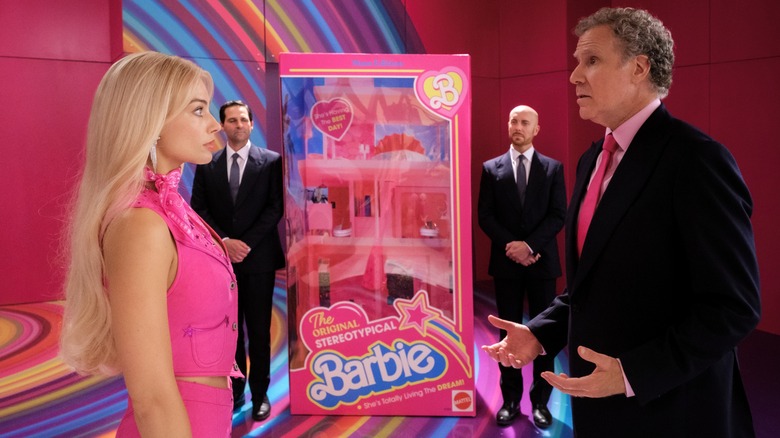It Ends With Us Has Been Banned In One Country For A Reason You May Not Expect
"It Ends with Us" tackles the tough subjects of generational trauma and spousal abuse, all set within the context of a romantic drama. Lily Bloom (Blake Lively) is a florist whose romance and eventual marriage to neurosurgeon Ryle Kincaid (Justin Baldoni) falls into question due to his obsessive jealousy and escalating emotional and physical abuse. Lily sees the pattern that connects back to the abuse her mother endured from her father but finds she cannot break away from Ryle and his charming ways. Enter Atlas (Brandon Sklenar), her childhood sweetheart and a local restauranteur. Now, Lily is motivated to leave Ryle, but can she?
It's a romance that's unsurprisingly not for everyone — and indeed, some may see it as a failed adaptation. But the country of Qatar has banned it for a reason that has nothing to do with its subject matter and everything to do with the fact that its main characters frequently lock lips. Deadline notes that the ban was handed down by the country's Censorship Committee, a governing body that decides on the movies that play at theaters in the country. And "It Ends with Us" definitely isn't the only film that's suffered from similar censorship by Qatar's government.
If you or someone you know is dealing with domestic abuse, you can call the National Domestic Violence Hotline at 1−800−799−7233. You can also find more information, resources, and support at their website.
Barbie and several MCU films have been previously banned in Qatar
Qatar has banned a whole lot of American films over the past few years. These include "Spider-Man: Across the Spiderverse" and the comedy "No Hard Feelings," as well as the romantic comedy "Anyone But You." While some of those bans may have to do with kisses the protagonists share, "No Hard Feelings" was banned due to its frank sexual content and nudity.
Some bans handed down by the Qatar censorship committee — such as ones against "Lightyear" and "Doctor Strange in the Multiverse of Madness" – seem to be related to the presence of queer characters and same-sex kisses in the narrative. Others were declared verboten due to the desires of the country's current minister of culture, Mohammad Mortada. That's why "Barbie" was never released in the country; he requested it banned because it "promotes sexual deviance and transsexuality," as quoted by the Los Angeles Times. Despite that ban, "Barbie" blew everyone away at the box office, and "It Ends with Us" seems to be on a similar track even with its controversial subject matter in mind.

